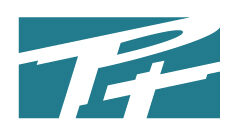Setting career goals isn’t just about climbing the corporate ladder. It’s about defining what you truly want out of your professional journey. Goals give your career a sense of direction and purpose, keeping you motivated on those tough days when you question your path.
When you have clear goals, you’re less likely to get distracted by opportunities that don’t align with what you truly want. Think of goals as your career’s GPS, guiding you through the twists and turns.
Career goals also play a huge role in long-term success. Having specific objectives helps you make better career decisions, ensuring each step you take is purposeful and adds value to your professional development.
And don’t underestimate the power of self-awareness in this mix. Knowing your strengths, weaknesses, passions, and values is key in setting realistic and fulfilling career goals. It’s like prepping your toolkit before a big task. The better you know yourself, the better you can map out your career path.
Steps to Set Effective Career Goals
 First things first, you need a solid foundation. Identifying what you’re passionate about and where your strengths lie is crucial. This isn’t just about what you’re good at; it’s about what excites you and makes you want to jump out of bed every morning.
First things first, you need a solid foundation. Identifying what you’re passionate about and where your strengths lie is crucial. This isn’t just about what you’re good at; it’s about what excites you and makes you want to jump out of bed every morning.
Take a good look at where you currently stand in your career. What skills have you mastered? What areas could use some growth? An honest self-assessment helps you see the bigger picture and pinpoint where you want to go from here.
Goals should be as clear as possible. This is where SMART goals come into play. We’re talking about goals that are Specific, Measurable, Achievable, Relevant, and Time-bound. Instead of saying ‘I want a better job,’ say ‘I want to be promoted to a senior analyst within the next two years by enhancing my data analysis skills.’
Ever tried creating a vision board? It can be a game-changer. Visualizing your goals makes them more tangible and keeps you motivated. Grab some magazines, print out some quotes, and create a board that reflects your career aspirations.
Feedback and mentorship are your best friends. Seek out mentors who can provide advice and insights from their own journeys. Feedback from trusted colleagues and supervisors can offer valuable perspectives and help you refine your goals.
Strategies to Achieve Your Career Goals
Start with a detailed action plan. Break down your goals into smaller, manageable tasks with clear deadlines. This will keep you on track and make the process less overwhelming.
Being adaptable is key. The professional landscape is always shifting, so stay open to new opportunities and be willing to adjust your goals as necessary.
Networking is more than just collecting business cards. Building genuine relationships in your industry can open doors to opportunities you might not even be aware of.
Skills and knowledge are your best assets. Continuously learn and upgrade what you know to stay relevant and competent in your field.
Work-life balance shouldn’t take a backseat. Pursuing career goals is important, but maintaining a healthy balance ensures long-term success and personal well-being.
Track your progress and don’t forget to celebrate your achievements, no matter how small. Recognizing your milestones keeps you motivated and helps you see how far you’ve come.
Rev up your brain to set goals
Here’s a little transparency: Our website contains affiliate links. This means if you click and make a purchase, we may receive a small commission. Don’t worry, there is no extra cost to you. It’s a simple way you can support our mission to bring you quality content.

